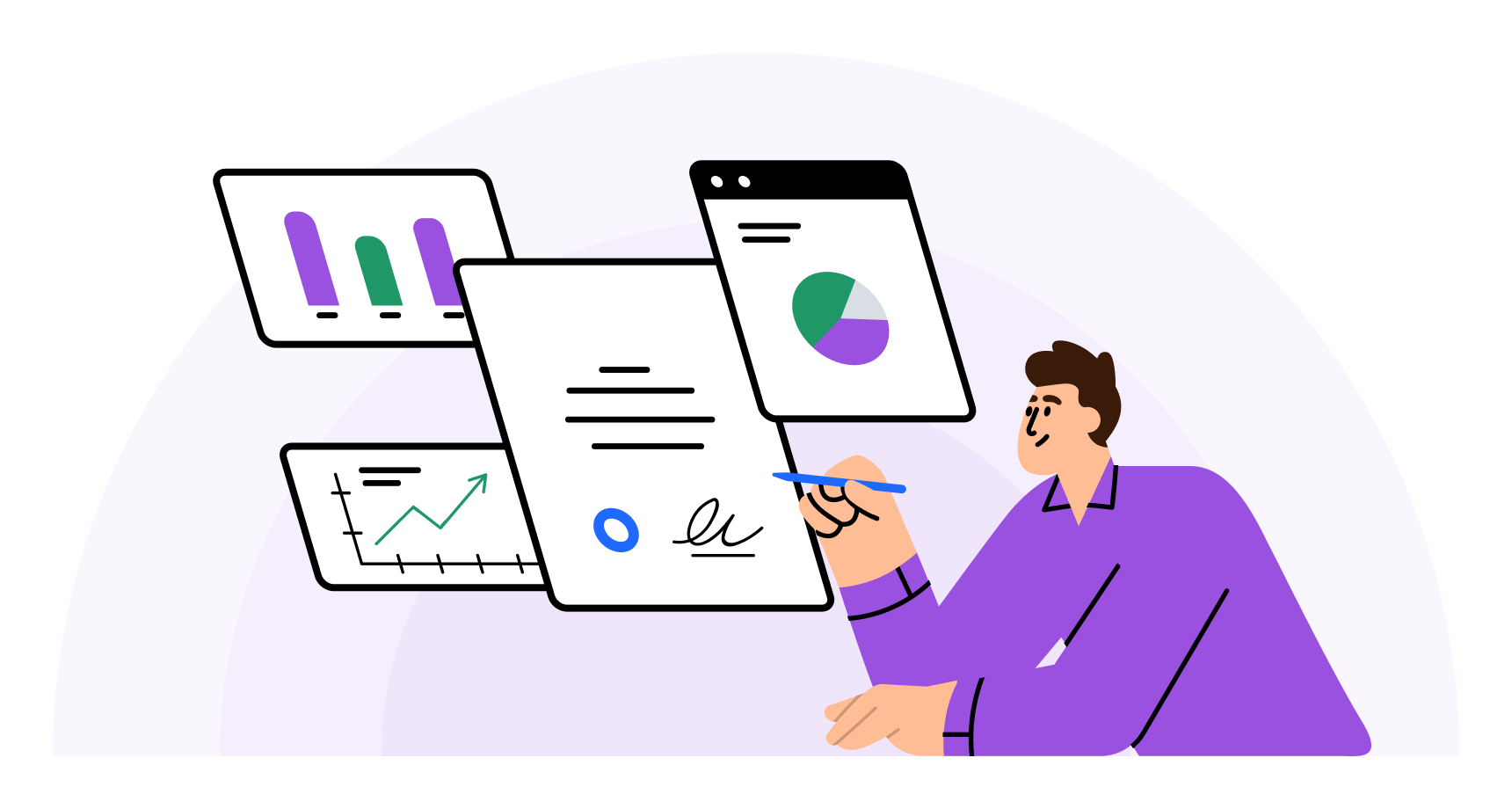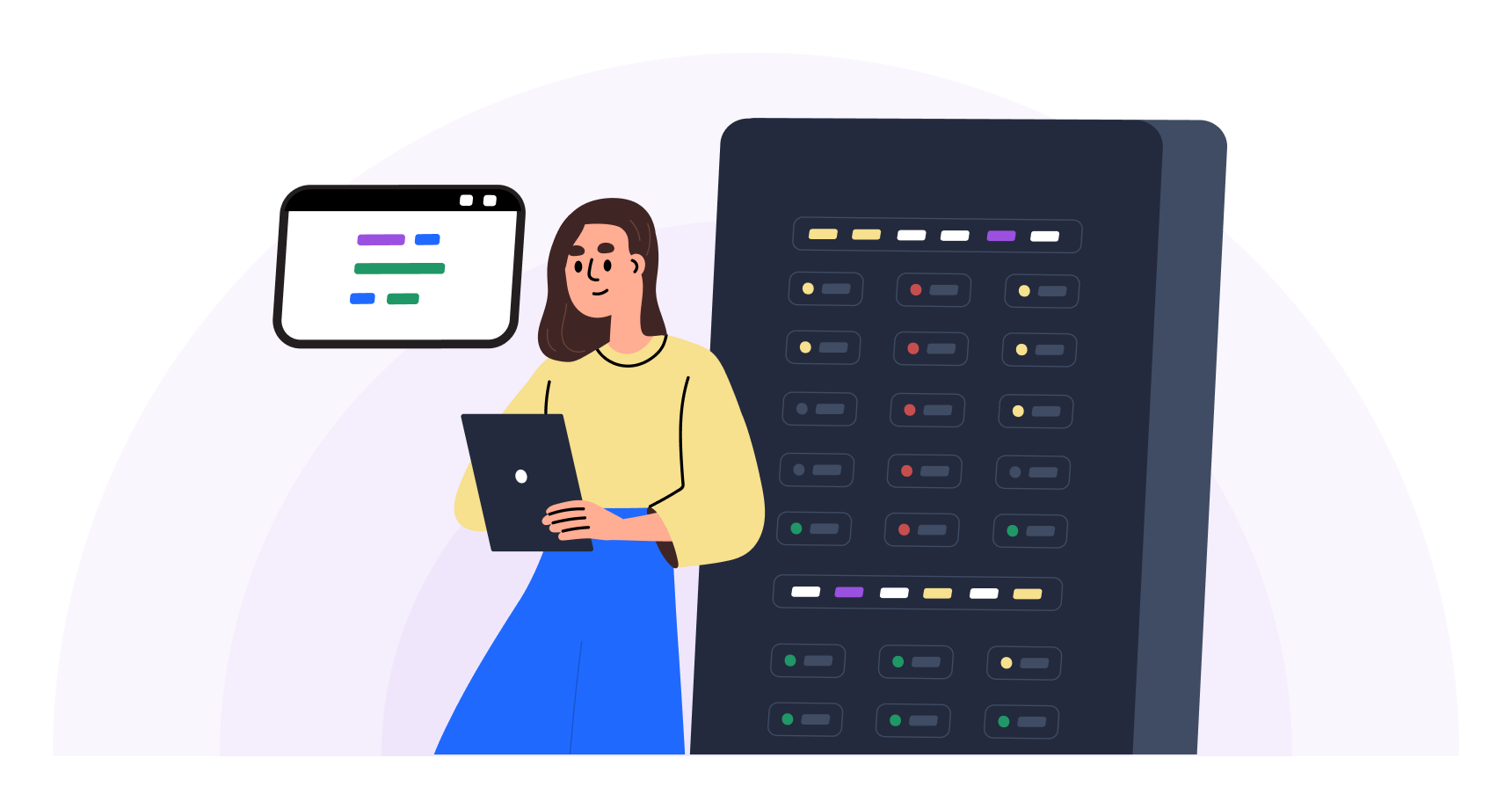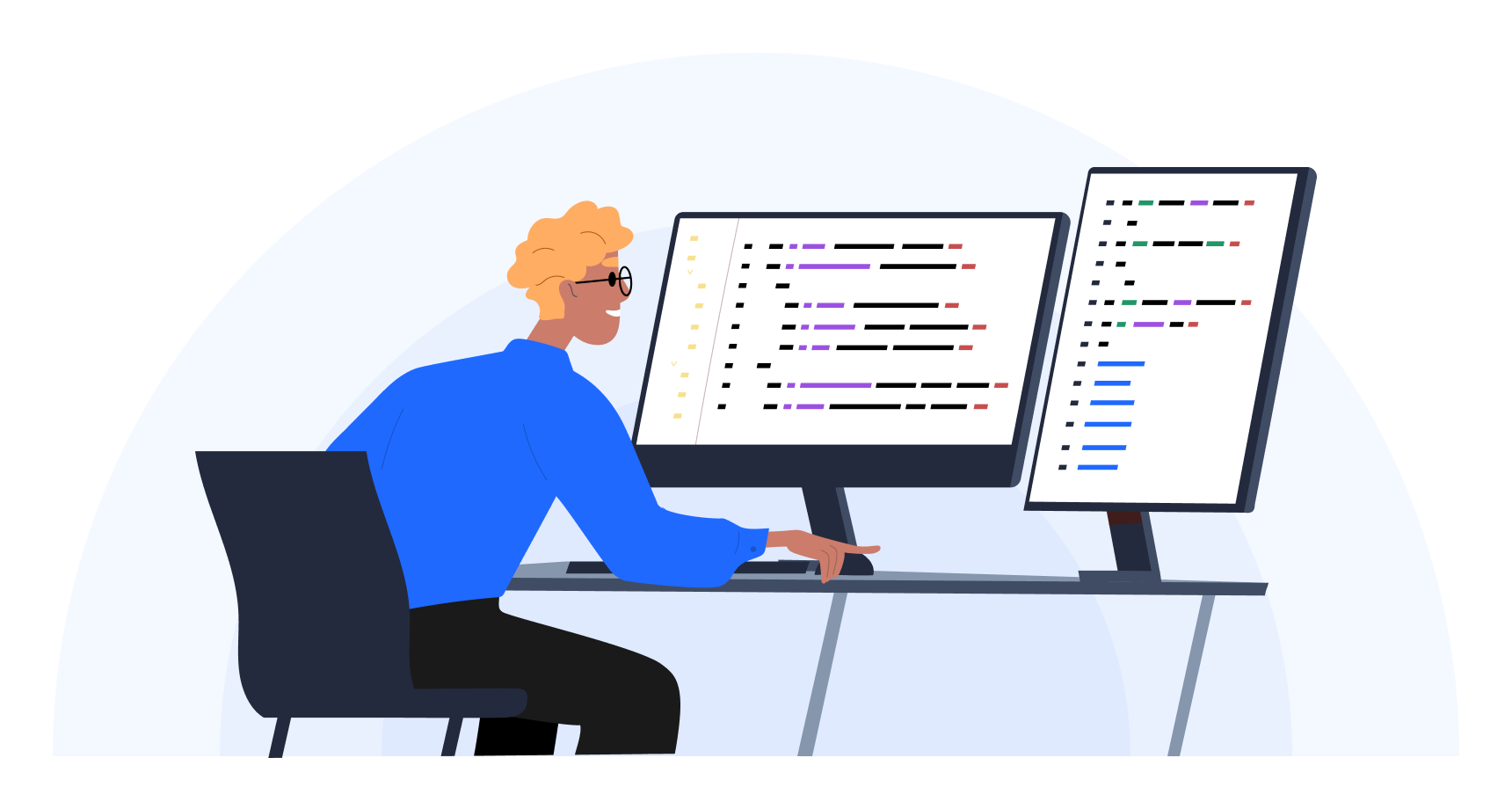8 Business Analyst Jobs That Are in Demand
Business analyst jobs continue to be in high demand—and for good reason. As organizations rely more on data to shape decisions, the need for skilled professionals who can translate numbers into insights continues to rise. According to the U.S. Bureau of Labor Statistics, business analyst roles are growing faster than average, and you don’t need a traditional degree to get started. Employers look for relevant, hands-on experience—like the practical, skills-focused training you get in our Business Analyst in Power BI and Business Analyst in Tableau programs—that demonstrate you have the skills they need to fill a business analyst position.
Job of a Business Analyst
A business analyst bridges the gap between IT and the broader organization, using data to evaluate processes, clarify requirements, and provide actionable recommendations to stakeholders. Rather than focusing only on traditional data analysis, these roles now emphasize critical thinking, problem-solving, and leveraging data insights to guide business decisions. This expanded skill set makes a business analyst an essential part of any organization's strategic planning and growth.
Business Analyst Positions
1. Entry-level Business Analyst
Entry-level or junior business analyst roles focus on foundational tasks and projects, such as data gathering, documentation, and basic analysis. While gaining familiarity with organizational processes, entry-level analysts typically have limited interaction with stakeholders and serve in a more supportive role. This phase is all about building essential skills and confidence for more advanced responsibilities down the line.
Salary: $74K–$125K/yr (Glassdoor)
Responsibilities:
- Gather and analyze data for potential business improvements or expansion.
- Assist stakeholders in supporting various business projects.
- Coordinate with cross-functional teams to enhance processes and outcomes.
- Draft clear, well-structured business requirements and documentation.
- Create reports, dashboards, and visualizations to monitor performance.
Skills:
- Familiarity with basic business analysis methodologies and frameworks.
- Understanding of data visualization tools like Tableau or Power BI.
- Proficiency in SQL or other database querying languages.
- Strong communication, organizational, and analytical abilities.
- Working knowledge of spreadsheet tools (e.g., Excel, Google Sheets).
2. Business Analyst
Business analyst roles involve a more expansive scope of responsibilities than entry-level positions. In addition to understanding core business requirements, these professionals identify opportunities and propose solutions that support company objectives. Acting as a liaison between business stakeholders and technical teams, a business analyst ensures that projects align with strategic goals and deliver real impact.
Salary: $99K–$170K/yr (Glassdoor)
Responsibilities:
- Analyze data from multiple sources to spot trends and process gaps.
- Improve data quality and create unified reporting using BI tools.
- Develop customized reports and dashboards for various operational teams.
- Design resources and processes to drive efficiency and data-driven insights.
- Quantify opportunities to inform strategic decision-making.
- Collaborate with cross-functional teams to support business goals.
Skills:
- Proficiency in Excel, SQL, and data visualization tools (e.g., Tableau, Power BI).
- Familiarity with Python, R, Git, or DBT is beneficial.
- Strong communication, problem-solving, and organizational abilities.
- Comfort with balancing detailed analysis alongside autonomous, timely execution.
3. Business Intelligence Analyst
Business intelligence analysts concentrate on transforming raw data into meaningful insights that guide strategic decisions. They often work with historical data to create detailed reports and dashboards, helping organizations understand past performance and identify trends. Through careful analysis of large datasets, they aim to pinpoint where the business can streamline operations, improve customer experience, and uncover growth opportunities.
Salary: $106K–$176K/yr (Glassdoor)
Responsibilities:
- Manage and optimize data warehousing solutions for reporting and analysis.
- Develop and maintain datasets, pipelines, and data relationships.
- Collaborate with cross-functional teams to deliver data-driven recommendations.
- Produce clear, actionable business requirements and documentation.
- Create reports, dashboards, and visualizations that track and interpret performance.
Skills:
- Strong grasp of business analysis concepts and methodologies.
- Proficiency in data visualization tools, such as Tableau or Power BI.
- Solid understanding of SQL or other database querying languages.
- Effective communication, organization, and analytical thinking.
4. Business Data Analyst
Business data analyst roles center on collecting, cleaning, and examining data to inform timely decisions. By working with diverse data sources, these analysts deliver actionable insights that drive immediate improvements in processes and performance. They often partner with both technical teams and business stakeholders to ensure data accuracy and quality throughout the entire lifecycle.
Salary: $97K–$152K/yr (Glassdoor)
Responsibilities:
- Examine current data to identify trends and insights.
- Leverage statistical and analytical methods to support decision-making.
- Monitor data quality and ensure accuracy across systems.
- Collaborate with stakeholders to clarify analytic needs and priorities.
- Engage in data engineering tasks, including cleansing and transformation.
Skills:
- Strong data cleaning, analysis, and visualization capabilities.
- Experience in statistical analysis and data management.
- Proficiency with reporting software and databases.
- Advanced skills in Excel or similar spreadsheet tools.
- High level of attention to details and critical thinking.
- Clear communication and effective teamwork.
- Solid problem-solving abilities.
5. IT Business Analyst
IT business analyst roles connect technical teams with the wider organization. These analysts examine and refine IT systems, translate business needs into clear technical requirements, and ensure that technology projects consistently support strategic goals. By overseeing communication between business units and IT experts, they help streamline processes and improve overall efficiency.
Salary: $91K–$145K/yr (Glassdoor)
Responsibilities:
- Assess and enhance IT systems and workflows.
- Gather and define business requirements for tech initiatives.
- Facilitate communication between IT teams and stakeholders.
- Align IT projects with broader organizational objectives.
- Evaluate how IT changes affect business processes.
- Conduct data analysis to guide informed decisions.
- Test and verify IT solutions before deployment.
- Provide training and ongoing support to end-users.
Skills:
- Proficiency in data analysis (cleaning, transformation, reporting).
- Strong grasp of the software development lifecycle (SDLC).
- Excellent communication and collaboration abilities.
- Familiarity with databases and IT infrastructure.
- Effective problem-solving and critical thinking.
- Knowledge of business analysis methods and frameworks.
- Experience writing SQL queries for data manipulation.
- Business acumen to align technical solutions with organizational goals.
6. Business System Analyst
Business system analyst roles are important for refining and streamlining business operations. By understanding organizational needs and aligning them with IT capabilities, these analysts identify and implement technology solutions that improve efficiency, productivity, and overall performance.
Salary: $108K–$169K/yr (Glassdoor)
Responsibilities:
- Collaborate with stakeholders to gather and document business requirements.
- Analyze existing systems and processes for improvement opportunities.
- Translate business needs into technical specifications.
- Recommend and implement appropriate technology solutions.
- Keep IT projects aligned with broader organizational objectives.
- Test and validate system updates or changes.
- Offer training and user support for new systems or enhancements.
- Stay informed about current industry trends and emerging technologies.
Skills:
- Proficiency in data analysis and data modeling.
- Solid understanding of business processes and IT architectures.
- Excellent communication and interpersonal skills.
- Technical expertise in software and systems.
- Strong problem-solving and critical-thinking capabilities.
- Ability to manage projects effectively.
- Familiarity with common business analysis methodologies.
- Experience with databases and querying languages like SQL.
- Business acumen for aligning technology solutions with organizational goals.
8. AI Business Analyst
AI business analysts play a vital role in maximizing the potential of artificial intelligence for organizational growth and innovation. They collaborate with data scientists and business stakeholders to identify areas where AI solutions can address challenges and enhance processes. Their expertise in data analysis and AI trends helps the organization adopt and integrate machine learning technologies responsibly and effectively.
Salary: $114K–$197K/yr (Glassdoor)
Responsibilities:
- Work with business stakeholders to uncover AI opportunities.
- Analyze data to determine suitability for AI applications.
- Collaborate with data scientists to develop and refine AI models.
- Assess the impact of AI on existing business processes.
- Ensure adherence to AI ethics and relevant regulations.
- Communicate AI insights and advantages to non-technical teams.
- Stay informed of evolving AI trends and emerging technologies.
Skills:
- Familiarity with AI and machine learning fundamentals.
- Proficiency in data analysis and data manipulation.
- Excellent collaboration and communication skills.
- Business acumen to identify high-impact AI use cases.
- Knowledge of ethical considerations and regulatory guidelines for AI.
- Ability to explain technical concepts to non-technical audiences.
How to Prepare for Business Analyst Roles
If you’re aiming to begin or advance your career as a business analyst, developing practical data skills is a top priority. The Dataquest Business Analyst learning paths offer two specialized options—one in
Power BI and one in Tableau—so you can tailor your learning to the tools and processes you need in your professional environment.
Explore Dataquest’s Business Analyst Paths
In each path, you’ll learn through a combination of interactive lessons, quizzes, and guided projects. By focusing on real business scenarios, these programs enable you to apply your skills in a realistic context, helping you build confidence in working with data.
Key Skills You’ll Learn
These programs are structured to ensure you gain the foundational abilities needed to succeed in a variety of business analyst roles. Along the way, you’ll practice:
- Excel Fundamentals: Strengthen essential spreadsheet skills for data organization and analysis.
- Data Cleaning and Preparation: Learn to process and organize data for deeper analysis.
- Data Visualization: Present data clearly using tools like Power BI and Tableau.
- Statistical Analysis: Develop techniques to interpret and analyze datasets.
- SQL and Database Knowledge: Build proficiency in querying and managing data.
- Business Intelligence Tools: Gain hands-on experience using BI platforms for data aggregation and reporting.
Hands-On Projects for Real-World Experience
Each path includes several guided projects that help you apply these skills in a practical setting. By working through realistic scenarios, you’ll create a portfolio that demonstrates your analytical abilities to potential employers or stakeholders. Here are some of the projects you’ll tackle:
- Preparing Data with Excel: Hone your data organization, cleaning, and consolidation skills.
- Visualizing the Answer to Stock Questions Using Spreadsheet Charts: Present stock data in clear, informative ways to address real business questions.
- Identifying Customers Likely to Churn for a Telecommunications Provider: Use exploratory data analysis to create customer profiles and detect churn risks.
- Analyzing Retail Sales: Examine retail data, uncover trends, and confirm insights with basic statistical models.
- Customers and Products Analysis Using SQL: Query a sales database to answer critical questions and guide business strategy.
- Modeling Data in Power BI: Apply data cleaning and data modeling techniques in a real-world environment.
- Visualization of Life Expectancy and GDP Variation Over Time: Work with real-world datasets to create meaningful visualizations.
- Building a BI App: Use Power BI to analyze course quality data and develop practical dashboards that support decision-making.
- Data Prep in Tableau: Connect to Excel data, define table relationships, and build a data model for analyzing student engagement and performance.
- Business Intelligence Plots: Create interactive Tableau dashboards for Adventure Works, comparing online and offline sales.
- Data Presentation: Develop an interactive Tableau dashboard to analyze a conversion funnel, then present your findings to leadership.
Whether you choose the Power BI or Tableau path, you’ll build a robust skill set through a blend of lessons and projects. By completing these courses, you’ll develop the practical, portfolio-ready experience that employers look for when filling business analyst positions.
Next Steps
The job of a business analyst is increasingly vital across industries, creating exciting opportunities for professionals who can transform data into actionable insights. If you’re aiming to develop or upgrade your business analysis skill set, Business Analyst with Power BI and Business Analyst with Tableau from Dataquest offer a comprehensive foundation to launch or advance your business analytics career.
If you’re looking to earn a recognized credential, our Power BI path will help you prepare for the Microsoft Power BI Data Analyst certification (PL-300).
Learning business analytics and AI doesn’t have to be overwhelming. Our hands-on courses enable you to build both resume-boosting skills and a project portfolio that will set you apart in the business analyst job market. By completing them, you’ll gain the practical, real-world expertise businesses are actively seeking.






